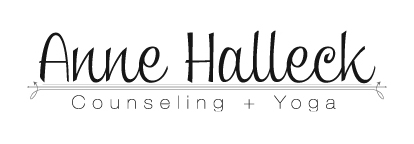
Worry

Worrying can become just one more thing to worry about. Most of us have a running tally of our bad habits, things to work on, things we should do, and people we want to be. Being an anxious person is not part of that ideal and so it’s added to our to-do list: item #37 Stop worrying. That’s a nice goal but worrying about our worrying just creates more stress.
Instead, give yourself some credit. Know that anxiety is a natural human emotion. Like our other emotions, it’s functional- helping us prepare for tasks and respond to threats. Accept that worry is normal and healthy and try to catch yourself from automatically jumping to self-judgement. Telling ourselves our worrying is out of hand and that there’s something wrong with us does not stop the worry. In fact, it increases it.
Being a worrier isn’t a flaw. Our anxiety can be in hyperdrive which is definitely unpleasant but that doesn’t make you a freak of nature. Increased worry usually has to do with increased stress. Ask yourself if there is something to worry about. Be compassionate toward yourself. Think of your worry as a voice trying to get your attention. You wouldn’t just shut it down if that voice came from a friend voicing a concern. You would notice: “oh they seem stressed”, check what’s bothering them “what’s wrong?”, and show some empathy and validate: “I’m sorry, that sounds rough”. You can do this to yourself.
Validate your own emotions. This can be a simple as reminding yourself that you’re a human and humans have emotions. You don’t have to understand it or feel the worry is justified to accept that it’s happening and be nice to yourself about it. When you notice it: Oh, I’m worrying again, I wonder what’s wrong. Maybe you get to the root of it, maybe not. Either way, don’t forget the most important step which is to validate your feeling and figure out how to take care of yourself in this time of stress: I guess I’m stressed today, it happens, I’m going to be easier on myself and focus on self-care.
Accepting your worry isn’t the only solution, but it is the best place to start. We are inclined to be self-critical and reject our feelings but unfortunately this does not aid our efforts to be happy, healthy, and productive. Being hard on yourself does not motivate you or make you feel calm, it only increases your negative emotions. Acceptance isn’t saying you enjoy worrying or that you’d like to encourage more worry in the future. Accepting is saying to yourself that worry is happening and it’s okay because you’re a human (I’m assuming) and sometimes humans worry.
Peace.
April 28, 2017
Self-Care


